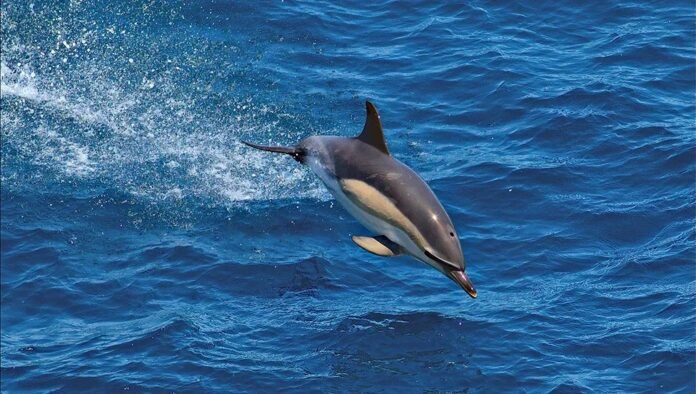
France has initiated a temporary ban on almost all commercial fishing in the Bay of Biscay, commencing this Monday and extending until February 20, in a bid to safeguard the lives of thousands of dolphins.
The decision, enforced by the country’s top administrative court last year, aims to address the alarming rate at which these marine mammals are accidentally caught in fishing gear, with estimates suggesting a staggering 9,000 dolphins perish in the bay each year.
The ban covers fishing grounds along the Atlantic coast from Finistere in Brittany to the Spanish border and represents the first of its kind since the end of World War II.
This sweeping measure is not without controversy, as local fishermen express concerns over the economic impact on their livelihoods.
Boats exceeding 8 meters, affecting approximately 450 French vessels, will be required to cease fishing activities during the one-month prohibition period.
Despite fears of financial losses, the French government has pledged compensation to alleviate the burden on the fishing industry. Minister Christophe Béchu assured fishermen that up to 75% of their losses would be covered and promptly paid.
Fishermen, however, are divided over the ban. Raymond Millet, a fisherman from La Rochelle, argued that vessels between 9 and 11 meters are not typically involved in dolphin bycatch, describing the halt in operations as “absurd.”
Nevertheless, environmentalists contend that the ban is essential to prevent further dolphin deaths resulting from entanglement in fishing gear.
Environmental groups, who have long advocated for better protection of marine life, argue that the ban is necessary to address a severe threat to the dolphin population.
Philippe Garcia, the head of the marine conservation group Défense des Milieux Aquatiques, emphasized the importance of fishermen complying with the ban, stating that failure to do so would only strengthen the case of environmentalists seeking increased protection for marine mammals.
The issue of accidental dolphin bycatch is not a new concern. Animals often become entangled in nets, ropes, and lines from fishing vessels, leading to immediate deaths for smaller species that cannot reach the surface to breathe.
Larger animals may tow heavy ropes, buoys, or nets for extended periods before succumbing to injuries. The International Whaling Commission warns that this poses a significant threat to the well-being of marine life.
Last year, the State Council ordered the fishing ban in response to calls from environmentalists for enhanced protection for dolphins.
However, French fishing industry body CNPMEM decried the move, labelling environmental NGOs as “extremists” and asserting that marine mammals are not endangered.
As the ban takes effect, the conflict between the economic interests of fishermen and the imperative to protect marine life highlights the complex challenges faced in achieving a balance between sustainable fishing practices and biodiversity conservation.
As France embarks on this unprecedented step, the world watches closely, wondering if it will set a precedent for other nations grappling with similar dilemmas in their efforts to protect marine ecosystems.
This article was created using automation technology and was thoroughly edited and fact-checked by one of our editorial staff members